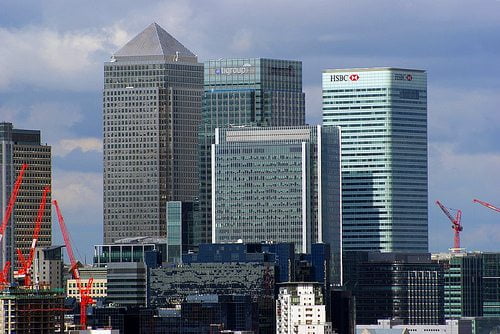

Economy
‘Shocking and widespread malpractice’ should land bankers in jail, says commission
The threat of prison sentences would give bankers “pause for thought” in acting in a reckless, irresponsible and unsustainable manner, according to a major report by the parliamentary commission on banking standards.
In its fifth report, the commission, which was set up in the wake of the Libor scandal in 2012, outlines measures to “change banking for good”. These include greater personal responsibility among bankers and more appropriate remuneration policies, which the commission says will help restore confidence in the banking sector among the public.
The commission also calls for an upheaval in the actions of regulators and governments, which it says have “contributed to the decline in [banking] standards”.
Commission chair Andrew Tyrie MP, said, “Taxpayers and customers have lost out. The economy has suffered. The reputation of the financial sector has been gravely damaged. Trust in banking has fallen to a new low.
“Prudential and conduct failings have many shared causes but there is no single solution that can restore trust in the industry.”
However, he added, “High standards will strengthen Britain as a global financial centre. International co-ordination, while desirable, should not be allowed to delay reform. We must get on and do what is right for the UK.”
The report has been welcomed by the Treasury. A spokesperson described it as “very impressive”, according to the Guardian.
Speaking at an event at St Paul’s Cathedral last week, the archbishop of Canterbury Justin Welby, who sits on the banking commission, said that we can have “potentially good banks”, which are motivated by virtue and not just financial bonuses and penalties.
Giving evidence to the commission, former investment banker Neil Jeffares, criticised the culture of mainstream bankers. “Bankers who object to unethical practices, or simply to excessive risk, will be labelled as trouble-makers or just treated as ‘not a team player’”, he said. Meanwhile, Dutch financial blogger Joris Luyendijk explained how traders “externalised ethics”, adding, “Once you have got past the priest, you are fine.”
Commenting on the release of the commission’s report, Laura Willoughby of campaign group Move Your Money said, “The commission has exposed the rot that was at the heart of our banking system and has pulled no punches in its recommendations in how it deal with it.
“Bankers must be responsible for their actions, customers need more choice and freedom to switch when unhappy and the economy needs trustworthy regulators.
“The government cannot afford to ignore this opportunity to transform banking. In five years since the banking crisis and nothing has changed. Banking needs to reform now and offer more competition or Britain’s economy will be held hostage by bad banks for generations to come.”
Move Your Money recently revealed that the market share of Britain’s biggest five banks had dropped 5 percentage points in 2012, with 2.4 million customers switching to alternative banking options.
These alternative options include building societies, credit unions, as well as dedicated ethical and responsible banks – many of which were profiled in Blue & Green Tomorrow’s Guide to Sustainable Banking 2012.
Paul Ellis, chief executive of Ecology Building Society, said the banking commission’s report “represents a crucial shift in attitudes towards banking: recklessness and impunity will no longer be the status quo.”
But, he added, “Crucially it recognises that a fundamental change has to occur in the whole infrastructure of banking including support mechanisms such as regulation and audit. However, the challenge of overhauling the entire regime, while allowing a route through for new entrants will be the biggest challenge.”
Further reading:
Big five’s banking monopoly at risk, with 2.4m closing accounts in 2012
Sustainable banks more ‘robust and resilient’ than high street institutions
Small is beautiful: why alternative banks need to step up to the mark
Banking commission says HBOS record is a ‘manual of bad banking’


 Environment12 months ago
Environment12 months agoAre Polymer Banknotes: an Eco-Friendly Trend or a Groundswell?

 Features11 months ago
Features11 months agoEco-Friendly Cryptocurrencies: Sustainable Investment Choices

 Features12 months ago
Features12 months agoEco-Friendly Crypto Traders Must Find the Right Exchange

 Energy11 months ago
Energy11 months agoThe Growing Role of Solar Panels in Ireland’s Energy Future






























